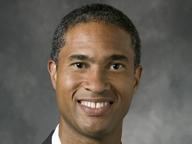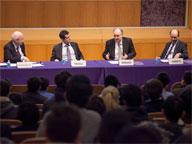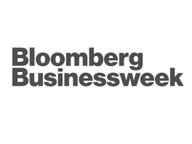Faculty News
—
In an op-ed, Prof. Aswath Damodaran offers advice to potential Apple investors
—

Excerpt from the Financial Times -- "Apple’s mix of momentum, growth and value investors, and a rumour ecosystem that feeds trading means the two processes can yield very different numbers. Investors have to make judgments: first on the stock’s value relative to price; and second on whether the gap will close."
Faculty News
—

Excerpt from the Financial Times -- "Apple’s mix of momentum, growth and value investors, and a rumour ecosystem that feeds trading means the two processes can yield very different numbers. Investors have to make judgments: first on the stock’s value relative to price; and second on whether the gap will close."
















